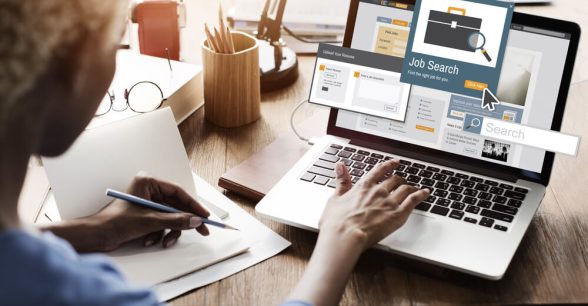Dating and Disability: Navigating Life Together in an Unaccommodating World
When I was picking out my first cane almost two years ago, my partner did all the right things—she showed up and listened to me. She helped me work through some of the internalized ableism I had about using a mobility aid by reassuring me that I shouldn’t be embarrassed and that I was making a positive choice. She accompanied me on my first few trips out of the house using it, and when we navigated public transit together, I felt safe and confident that I had a great support system on my side.
We all deserve significant others who respect and support us unconditionally, but it can be hard to find a partner who gets it (or is willing to learn). “I told him during our first date that I was dealing with some health issues and he could either come along for the ride, or not,” says Lizz Schumer, a writer from New York City who has fibromyalgia, about the man who is now her husband.
When you’re a disabled person and your partner isn’t (or even if they are, but you don’t have the same disability), it often involves a lot of educating and emotional labor on the disabled person’s part. Andrew Gurza, the host of Disability After Dark, a podcast about sexuality and disability, finds this happens to him often when it comes to date planning. “All of that leg work with respect to what is accessible is bound to fall on me,” he says. “I am the one who has to figure out accessible transit, I have to call ahead and know what restaurants or bars my accommodate me and my chair.”
Disabled people often have to deal with skepticism and partners who aren’t willing to understand or accommodate our needs. Rachel Rose, a chronically ill sex educator and graphic designer who runs Hedonish, an educational blog about chronic illness and sexuality, says, “The best way that romantic partners can support me is to be understanding when it comes to accommodating my fragrance sensitivities. I’ve had people in my life that have made me feel like I was a burden for asking them not to use certain products around me.”
Disabled people need our partners to put in their share of the effort around unlearning harmful stereotypes and assumptions about the disability community, accessibility, and accommodations. Their first step should be to listen and empathize. My partner and I, for example, spend a lot of time talking about the way disabled people who use mobility aids are treated. She doesn’t know what it’s like to get on a crowded train with a cane and find that everyone is staring at her, but she’s willing to listen to how that feels for me. “Although he’s encouraging in all things, he never questions how I’m feeling on a certain day, whether my pain or exhaustion can be ignored, or whether I’d be capable of more if I pushed harder,” Vix Jensen-Collins, a writer, activist, and creator with cerebral palsy, says about her husband. It sounds simple, but many non-disabled people aren’t willing to actively listen when disabled people are talking about our experiences. They already have existing assumptions about our bodies, minds, and abilities.
For the disabled partner, this means we need to be honest about where we’re coming from as much as possible. The vulnerability that can often stem from to sharing what our experiences are like with a non-disabled partner can be difficult, but it’s important if we want them to understand what we’re going through. With my partner, I try to describe what I’m feeling; I might say that I’m in a lot of pain, but it’s mainly my upper body and walking is fine. Or I’m not in pain, but my stomach hurts. Lizz explains, “If I’m having a high pain/fatigue day and don’t feel up to something (whether that’s a planned outing or just household responsibilities), it doesn’t help Nick support me if I don’t share that with him. That openness and communication—admitting when I need support—is something I’m continually working on.”
As the disabled partner of an able-bodied woman, I often think about what it means to be independent in a relationship. My partner and I live together and share responsibilities such as household chores, paying bills, and cooking meals. There are tasks I can’t physically do, like shoveling out my car after a blizzard or any heavy lifting. We have open conversations about managing those minutiae, based on a combination of who’s able to do a task, who might enjoy it or be better suited for it, and who has the most free time and energy.
Sossity Chiricuzio, a queer working class crip femme storyteller who lives in Portland, OR with her partner, has a similar process, and says, “We recognize emotional labor and management as well as physical chores, and work towards the best balance in that moment.” There’s not one system that works for every partnership, and it all depends on the people in the relationship to decide what will work best.
It can also be emotionally exhausting as a disabled person to deal with any limitations we have, especially if those interfere with a non-disabled partner’s view of romance. It helps when our partners are willing to adapt. “I had a date recently on a really terrible pain day; it was just one of those days where you wake up and immediately want to go back to sleep so you don’t have to experience being in your body. But my date came over, and ran me the most perfect epsom salt bath. Then they read me queer fairy tales while I took a bath,” says Liz Moore, a queer disability justice activist.
It’s invaluable to me when my partner is willing to adapt in similar ways. That can look like rescheduling our plans to go grocery shopping and staying in with delivered food and a movie, or offering a shoulder massage and low key plans when I’m in pain. What’s really critical is that she listens uncritically and believes me; if I tell her I’m extremely fatigued even after sleeping for twelve hours, she doesn’t ask me how that’s possible (because the answer is, of course, that I have Ehlers-Danlos syndrome and autism), she asks me how she can support me.
Non-disabled partners need to be understanding in a variety of situations, whether it’s in accessibility planning or navigating life together in an unaccommodating world. My partner and I like to go to the gym together because low impact cycling and swimming are great exercises for me, but when I’m unable to go, she’ll make the trip without me. And she doesn’t make assumptions about anything—if I’ve been laying low because of pain for a few days, she’ll ask me first before jumping to the conclusion that I’m not up for a walk to the beach or a scheduled errand. It’s essential that our partners listen, believe us, empathize, and support us in whatever ways we need; that’s what non-disabled people in romantic relationships expect, and it shouldn’t be any different for someone with a disability.
About Rooted In Rights
Rooted in Rights exists to amplify the perspectives of the disability community. Blog posts and storyteller videos that we publish and content we re-share on social media do not necessarily reflect the opinions or values of Rooted in Rights nor indicate an endorsement of a program or service by Rooted in Rights. We respect and aim to reflect the diversity of opinions and experiences of the disability community. Rooted in Rights seeks to highlight discussions, not direct them. Learn more about Rooted In Rights




Alaina, I’m so happy that you had a wonderful experience with your partner. Understanding how to de-stigmatize folks who need mobility assistance is vital to helping make people with disabilities feel comfortable and part of a normal life.